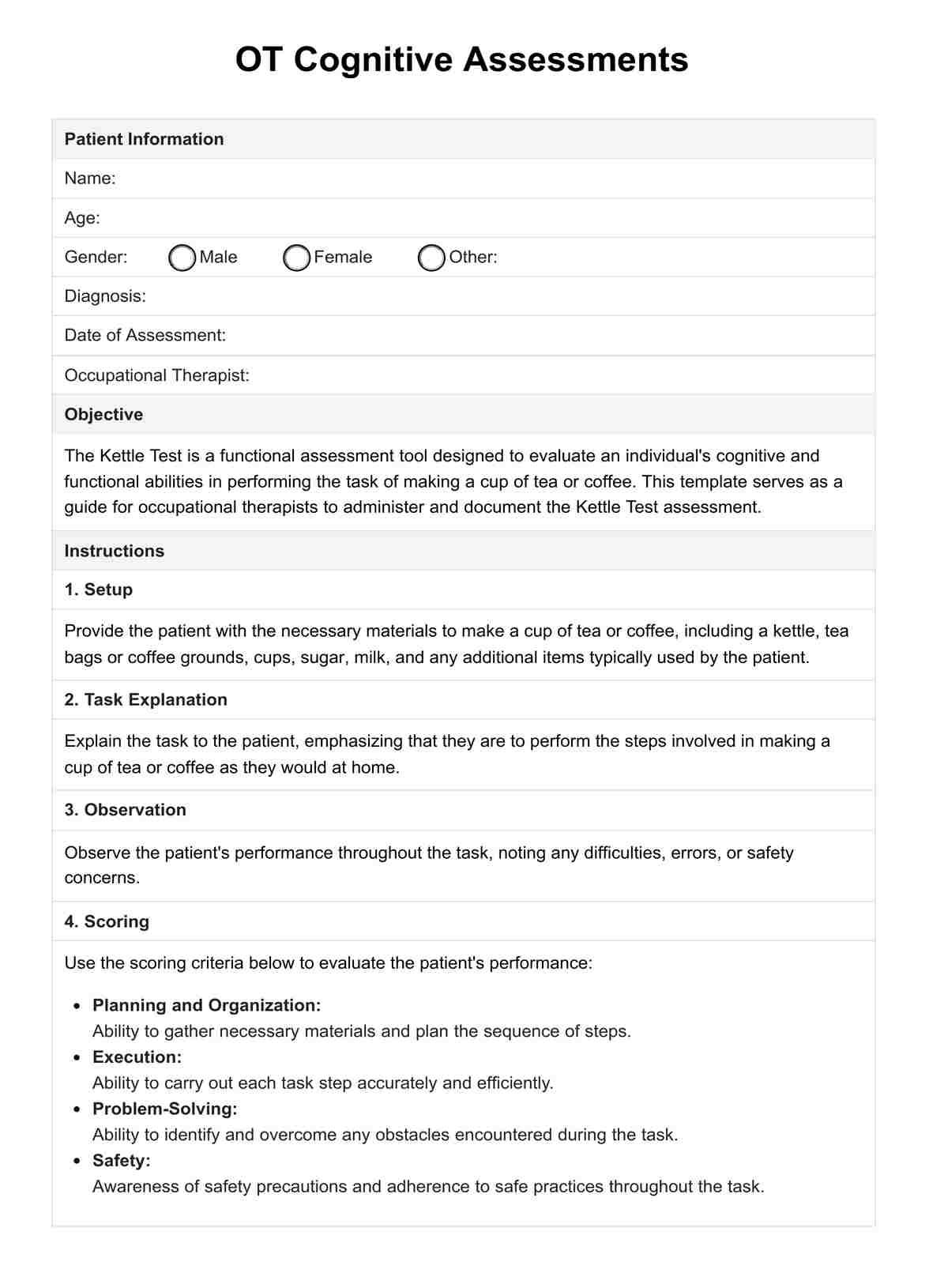OT Cognitive Assessments are essential for identifying cognitive strengths and weaknesses, guiding intervention planning, monitoring changes in functional cognition over time, and optimizing functional outcomes for individuals with mental impairments.

Counseling Theories Comparison Chart
Explore a tool to differentiate counseling theories and select approaches that can work best for each unique client.
Use Template
Counseling Theories Comparison Chart Template
Commonly asked questions
Individuals of all ages who experience cognitive challenges due to conditions such as aging, dementia, traumatic brain injury, stroke, or developmental disabilities can benefit from OT Cognitive Assessments.
Common assessment tools used by occupational therapists include the Mini-Mental State Examination (MMSE), Montreal Cognitive Assessment (MoCA), Trail Making Test (TMT), Clock Drawing Test, and Functional Independence Measure (FIM).
EHR and practice management software
Get started for free
*No credit card required
Free
$0/usd
Unlimited clients
Telehealth
1GB of storage
Client portal text
Automated billing and online payments











